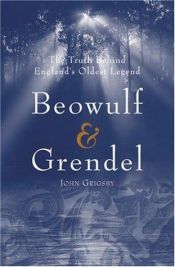Beowulf and Grendel
Blurb
In Beowulf & Grendel: The Truth Behind England's Oldest Legend, John Grigsby interprets Beowulf as "the recounting in poetic form of a religious conflict between two pagan cults in Denmark around AD 500". Grigsby argues that the poem reflects the violent ending of the native fertility religion of Nerthus. As summarized in the course of a film review in The Independent:"Grigsby sees the work as a poetic account of forceful suppression of an older fertility cult, with human sacrifice central to its religion, in 5th-century England, and its replacement by an incoming warrior cult. Grendel stands for a vibrant English pagan religion as rich and complex as that of the early Celts. Grendel's mother represents the outgoing fertility goddess in whose sacred Danish lakes, Tacitus recorded, human victims were drowned."

 English
English Español
Español Deutsch
Deutsch









Member Reviews Write your own review
Be the first person to review
Log in to comment